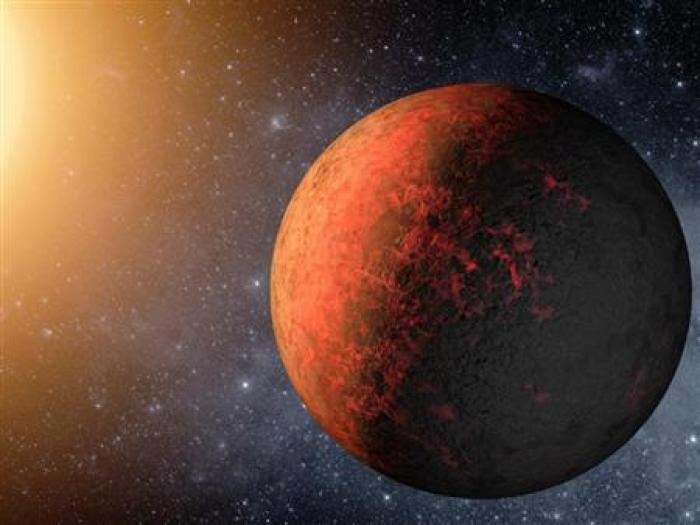Most 'Earth-Like Alien World' Discovered by Astronomers; Speculate on Possible Life

Astronomers have discovered eight new planets in a distant solar system, and called one of them the most "Earth-like alien world" that has ever been found. Three of the planets are said to be potentially habitable, with the Earth-like one having a rocky surface and only slightly warmer temperature.
BBC News reported on Wednesday that the discovery was announced at the 225th meeting of the American Astronomical Society in Seattle, Washington. The planets were spotted by NASA's Kepler telescope, which has now discovered over 1,000 exoplanets.
The Earth-like planet, dubbed Kepler 438b, is believed to resemble the conditions of Earth even more so than Kepler 186f, which was previously said to be a twin planet to Earth.
Doug Caldwell from the Search for Extra-Terrestrial Intelligence Institute in California noted that Kepler 438b, which is 12 percent larger than Earth, likely receives 40 percent more heat from its sun than Earth.
"And it's around a cooler [red dwarf] star ... so your sky would look redder than ours does to us," the researcher said.
Laura Schaefer of the Harvard-Smithsonian Center for Astrophysics, who also attended the AAS meeting, said that some of the newly discovered planets could very well harbor large oceans, much like Earth.
"When people consider whether a planet is in the habitable zone, they think about its distance from the star and its temperature. However, they should also think about oceans, and look at super-Earths to find a good sailing or surfing destination," Schaefer said.
She added that studies on water-development on planets have suggested that evidence for life should be looked at in older super-Earths.
"It takes time to develop the chemical processes for life on a global scale, and time for life to change a planet's atmosphere. So, it takes time for life to become detectable," said study co-author Dimitar Sasselov.
The Kepler telescope detects far-off planets by trailing behind the Earth and peering into the distance as Earth orbits around the sun. It identifies planets by observing "transits," or dimming of a star's light when a planet passes in front of it.
Close study of Kepler 438b is a far-off dream, however, as the planet is close to 475 light-years away from Earth.
That makes it difficult to conclude what exactly these planets are made out of.
"From the Kepler measurements and the other measurements we made, we don't know if these planets have oceans with fish and continents with trees," Caldwell said.
"All we know is their size and the energy they're receiving from their star. So we can say: Well, they're of a size that they're likely to be rocky, and the energy they're getting is comparable to what the Earth is getting," he continued.
"As we fill in these gaps in our solar system that we don't have, we learn more about what it means to be Earth-like, in some sense."
Last week, University of Dayton political science professor Joshua Ambrosius told Catholic News Service that an analysis of national surveys in America reveals that Roman Catholics are more likely to support space exploration and the search for alien life than other denominations.
Ambrosius revealed that he studied the 2010 General Social Survey of the National Opinion Research Center at the University of Chicago; the June 2011 Political Survey of the Pew Research Center for the People and the Press; the April 2010 Political Future Survey and the spring 2009 General Public Science Survey, to arrive to his conclusions.
"Evangelicals express significantly higher expectations that an asteroid will hit earth, but significantly lower expectations of the discovery of life off the earth," the political science professor said.




























